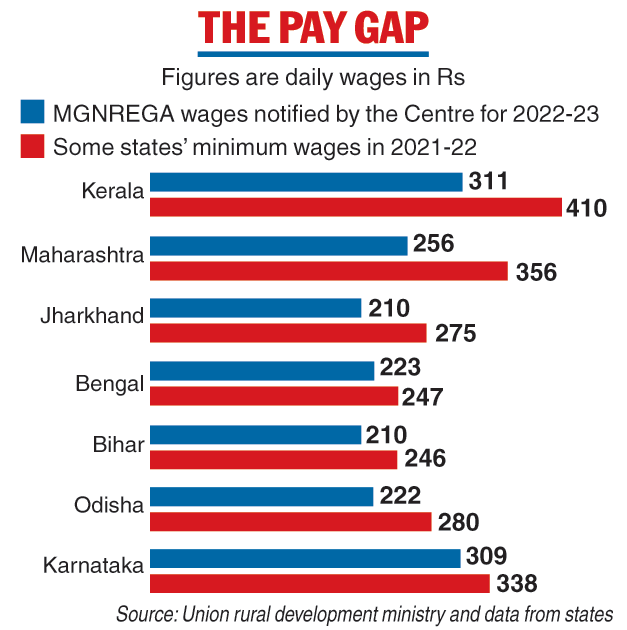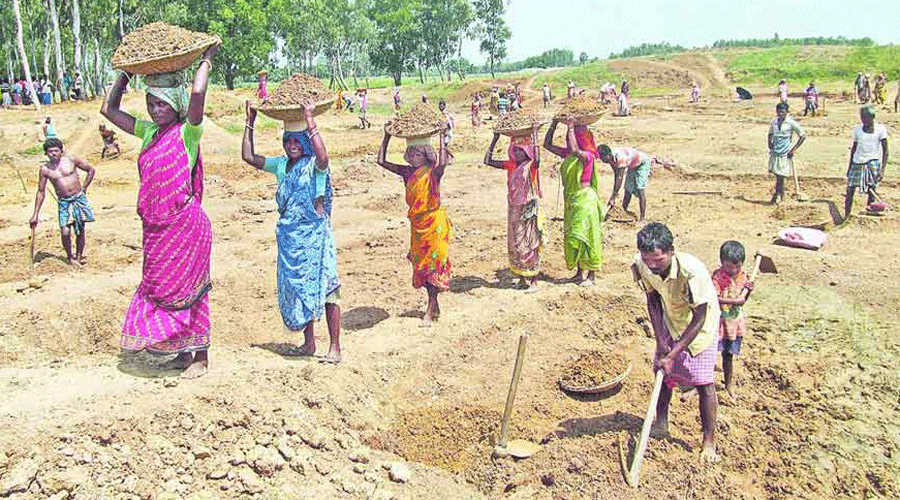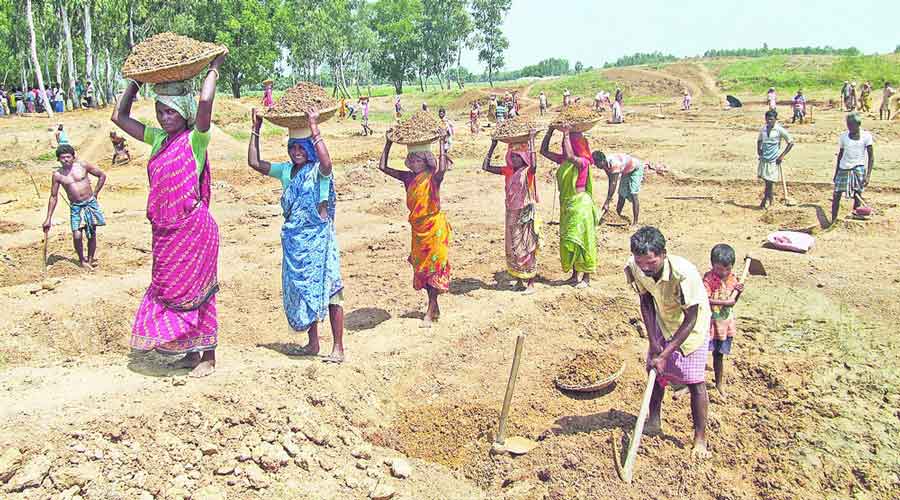The Centre on Tuesday increased wage rates for states under the Mahatma Gandhi National Rural Employment Guarantee Act (MGNREGA) by five to seven per cent but the revised amounts still fell short of the minimum wages that had been notified by the states for similar unskilled work.
According to the new wage rates notified on Tuesday, Sikkim has the highest daily payout at Rs 333 under the MGNREGA for 2022-23. The amount was Rs 318 in 2021-22.
MGNREGA workers in Madhya Pradesh and Chhattisgarh will receive a daily wage of Rs 204, the lowest among states, up from Rs 193. Workers in Bengal will get Rs 223 for a day’s work, a hike of Rs 10. The amount varies based on difficulty of terrain and working conditions.
The NREGA provides 100 days of unskilled work per family per year in rural areas. Currently, the scheme gives work to 10 crore people. Demand for work under the national job scheme has increased amid the pandemic that has wrecked the economy and rendered millions jobless.
Social activists criticised the central government for not accepting the demand to set MGNREGA wage rates on a par with the minimum wages paid by the states, mostly for agrarian work.

They said workers would not be able to maintain minimum living standards with the paltry hike under the NREGA.
Nikhil Dey, who works with the Mazdoor Kisan Shakti Sangathan in Rajasthan, said the minimum NREGA wages remaining lower than the states’ payouts amounted to denial of basic standards of living to those opting for the national job scheme.
“The central government continues to deny basic minimum wage to the poor workers. An expert committee under Mahendra Dev had (in 2014) recommended that the MGNREGA rates cannot be lower than the states’ minimum wages for agricultural workers. But the central government is not implementing the report. This is unconstitutional,” Dey said.
According to the
MGNREGA Act, the wage for each state is revised every year on April 1 in keeping with the Consumer Price Index for Agricultural Labour (CPIAL), which factors in inflation based on consumption by farm workers.
The CPIAL gives more weight to food consumption, whose rates largely remain unchanged because of subsidies provided by the government. Therefore, the CPIAL hovers between zero and 7 per cent in states, said an official in the rural development ministry.
Dey said the states had the right to determine the minimum wage to ensure workers are able to maintain basic standards of life by spending adequately on food, clothes, shelter and health.
An official sought to justify the lower wage rates under the MGNREGA by saying it was a fallback option for workers.
“The idea of the MGNREGA is that workers will demand work when they do not have any other option. The idea is not to attract workers to the MGNREGA,” the official said.











